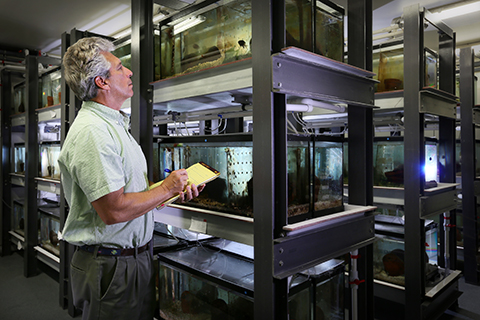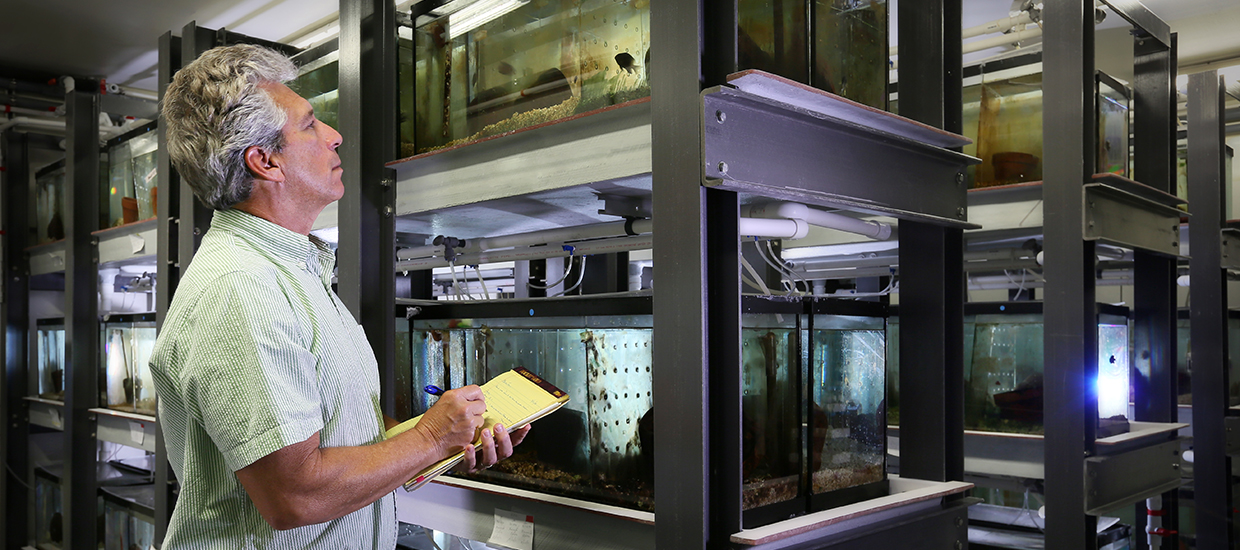Aplysia from the facility serve in research on genomics, human brain function, toxicology for developmental studies, natural products, chemistry for isolation of novel anti-tumor and antibacterial compounds, in the study of transport by digestive tissues and have potential for use in studies of substance addiction and nerve senescence and regeneration.
Some researchers use the oversized Aplysia californica neuron as the model for the study of diseases such as Alzheimer’s, Parkinson’s and other common brain diseases.
A secondary goal of the National Resource for Aplysia is to continue to promote advanced science education and community awareness of the relevance of the work being performed by our researchers. To this end, the Aplysia facility offers educational tours, advanced academic workshops and seminars to students, youth groups, educators and visiting scientists from around the world. Volunteer internships are also offered to qualified undergraduates with an interest in marine biology, aquaculture, animal husbandry and general biological research techniques. The facility also accepts a limited number of outstanding high school students for executive internship programs sponsored by the Miami-Dade County Public School system.
Biological Description
Aplysia californica is a herbivorous marine mollusk that inhabits the marine coastal community. Aplysia californica typically live in the Pacific Ocean from northern California to Baja California. Individual Aplysia can often be found on their algal food, and aggregate in large numbers near food in the summer months (June – August) when they breed. Read more
Scientific Importance
The marine mollusk Aplysia californica is an important animal for experiments in cellular, molecular and behavioral neuroscience because of the distinctive organization of its nervous system, which makes it appropriate for cellular analysis of a variety of behaviors, learning and memory. Read more
Taxonomic Classification
Aplysias described taxonomically here.
Life Cycle
View the life cycle of an aplysia.





